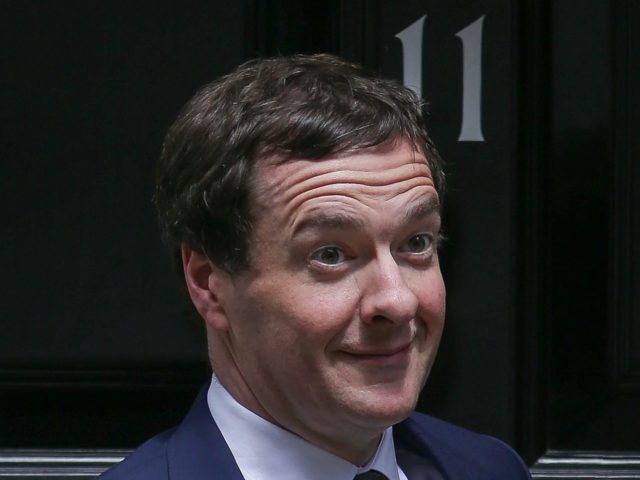George Gideon Oliver Osborne, the former Tory chancellor, has admitted he did not “understand” people outside of London were “angry” and felt “disconnected” from the governing elites in Westminster and the European Union (EU).
Mr. Osborne attended Oxford university where he met former Prime Minister David Cameron and joined the exclusive Bullingdon Club.
In the lead up to the referendum on Britain’s membership of the EU, he was the leading proponent of Project Fear, threatening a “punishment” budget and claiming there would be “immediate” and “severe” consequences.
However, four months on, reflecting on “mistakes I’ve made” when talking to the BBC, he said:
“I don’t think I properly understood the sense that people had in many communities, particularly in the north of England, that they were completely disconnected from the system, from the way our country was governed.
“That they felt angry about things – and I think many people used the EU referendum to express that anger.”
He added: “I’ve got to go on learning, not least why the country voted the way it did in the referendum that led to me leaving Downing Street.”
Defending his economic record, Mr. Osborne said that when he entered Downing Street in 2010 “the country was in an economic crisis”.
He insisted: “All of my efforts and energy was on trying to fix the crisis”, adding attention should to turn to helping “communities who feel left behind” due to job and pension insecurity.
Last month the world’s ‘leading’ economic think-tank, the Organisation for Economic Co-operation and Development (OECD), which was repeatedly cited by the former chancellor to push Project Fear, humiliatingly U-turned on its ‘doomsday’ Brexit warnings, predicting strong growth for the UK.
The Office for National Statistics (ONS) said the Brexit vote had had “no major effect” on the economy, the OECD said “markets have since stabilised”, and the International Monetary Fund (IMF) acknowledged the UK had “surprised on the upside”.
Specifically, the OECD claimed that the UK was likely to experience 1.8 per cent growth in 2016, up from their dismal 0.1 per cent prediction made before the referendum on the UK’s membership of the EU.

COMMENTS
Please let us know if you're having issues with commenting.